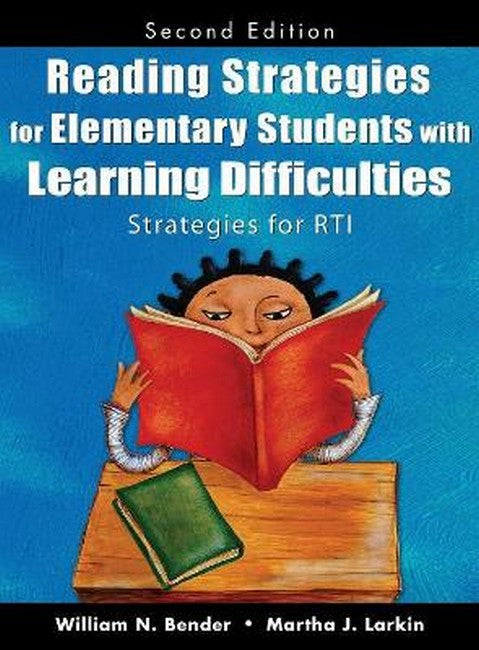William N. Bender, PhD, has had a long and distinguished career in education, teaching in public school for several years and in higher education for some 26 years at Blue?eld State College in West Virginia, Rutgers University in New Jersey, and the University of Georgia. He has written 36 books in special and general education. With his retirement, he has stepped back from his rigorous workshop schedule, which as recently as 2016 included some 40 workshop days per year. While the COVID-19 pandemic impacted his work, he has written four historical ?ction novels and several educational books in recent years. He has delivered several professional development projects, including most recently a keynote for a virtual conference on project-based learning in Brazil in conjunction with his Corwin book Project-Based Learning (2012). Learn more about William Bender's PD offerings Consulting Description: Differentiated Instruction Consulting Description: Math Consulting Description: Project-Based Learning Consulting Description: RTI Consulting Description: Technology Martha J. Larkin taught public school students in general education and special education at the elementary, middle, and secondary levels for several years before beginning a career in higher education. She has authored and coauthored 17 journal articles, 10 book and monograph chapters, and 5 research reports and commissioned papers in education and special education. She specializes in instructional strategies, particularly for students with learning disabilities. Her specific teaching and research interests include scaffolded instruction, content enhancement, learning strategies, graphic organizers, and grading rubrics. She especially enjoys pursuing these interests in the areas of reading, writing, and mathematics. She earned her PhD from the University of Alabama in 1999.
Request Academic Copy
Please copy the ISBN for submitting review copy form
Description
Acknowledgments About the Authors Introduction 1. The Reading Brain and Literacy Instruction The Good News in Reading Research! Big Ideas From Early Literacy Research The Emerging Emphasis on Literacy Assessments of Early Literacy Brain-Compatible Reading Instruction A Brain-Based Model of Reading What the Brain Research on Reading Has Found Conclusion What's Next? 2. Phonemic Instruction: The Critical Emphasis in Reading and Literacy Phonological Instruction and Phonemic Instruction Phonemic Awareness or Phonemic Manipulation Guidelines for Phonemic Instruction Phonemic-Based Reading Programs Conclusion What's Next? 3. Phonics and Word Attack Strategies Phonics and the Brain Phonics Instructional Options Strategies for Developmental Reading and Spelling Stages Conclusion What's Next? 4. Strategies for Building Vocabulary and Reading Fluency Vocabulary and Reading Fluency Building Vocabulary The Importance of Vocabulary Development Do We Still Need Sight-Word Approaches for Vocabulary Instruction? How Good Readers Read Learning New Vocabulary Terms Word Recognition Instruction Deriving Meaning From Vocabulary Learning Strategies for Vocabulary Mastery Reading Fluency Conclusion What's Next? 5. Gaining Meaning From Reading Reading Comprehension and the Brain Story Grammar Student Think-Alouds or Inferencing Substrategies Question Answering List Summaries Improvisational Drama Cooperative Discussion and Questioning (Coop-Dis-Q) Collaborating Strategic Reading (CSR) Bibliotherapy Conclusion What's Next? 6. Reading Comprehension in the Content Areas Content Area Reading and the Brain KWPLS (Know, Want to Know, Predict, Learned, Summarize) Analogies Instruction Possible Sentences Vocabulary Self-Collection Strategy (VSS) Guided Reading in Textual Settings (GRITS) ReQuest: Asking Self-Declared Questions Idea Circles Infra-Act: Sharing Perspectives Question-Answer Relationships Conclusion Resources: Commercially Available Reading Programs Glossary Index
"The authors have taken a huge amount of research and information, digested it, and organized it into a clearly arranged, practical, readable, and usable work. This book balances information, suggestions, and examples with reflective exercises that are practical and valuable. It also gives tons of Web sites and resources for more useful tools and tips." -- Mary Guerrette, Director of Special Education "Provides research-based information about various reading difficulties from knowledgeable and reputable experts in the field. I appreciate the organizational features: the checklist of strategies at the beginning of each chapter, the reflective exercises throughout the book, teacher tips in each chapter, and the 'What's Next' section at the end, which is a good way of priming the brain for what it's about to learn." -- Sandra Rief, Speaker, Author, Educational Consultant

